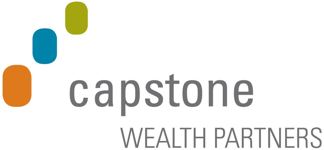For-Profit Colleges: What You Need to Know
By Joe Messinger, CFP®
August 18, 2020
Often, we only hear the horror stories about for-profit colleges. We hear the news about the college that took advantage of their students leaving them with huge debt, no better employment prospects, and maybe even without a degree. These horror stories are not to be ignored, but for-profits can be the right choice depending on your situation.
For-profit colleges are owned by an individual or a group of shareholders whose purpose is to make a profit–unlike non-profit institutions who are governed by a board of directors who reinvest revenue back into the college or hold it for that purpose in the future. The dangerous for-profit colleges are those that seek to make a profit at all costs rather than focusing on the student’s education.
However, some for-profit schools do share the higher ideals of non-profit institutions. They do seek to educate their clients and provide them with marketable skills in a manner which supports the student and sets them on a path to success. The key is being able to steer clear of the shady car dealer and find the better choice.
Marketing Machine
For-profit colleges are marketing machines. You know the names of some of them–Phoenix, DeVry, ITT Tech (has closed), Capella. You know their names because they are skilled marketers with memorable advertisements. Often for-profit colleges target non-traditional students (veterans, adults, GED students, high need), and their message of how they will help you find a job appeals to those who might want a quicker, less expensive path to a career.
Who is going to pay?
For-profit colleges are very smart. They know their students have access to federal financial Title IV aid and veterans benefits just like the non-profit colleges do. They know their marketing works, and they know they can get the government to pay for it in cases of federal financial aid. This aid includes federal student loans. For-profit colleges are known for having higher than average student loan debt rates among their students.
However, federal aid is limited in the total amount available so some students get started in a program, run out of federal aid, and find themselves taking out private loans to fund the remainder.
The federal government pays close attention to the amount of federal money being used by for-profit institutions, but their rules have varied depending on who is in office at the time. The 1992 Higher Education Act reauthorization limited federal aid at for-profit schools to 85% of their total revenue. In 1998, that limit was increased to 90%. “For-profit colleges that exceed 90 percent of their revenue from federal financial aid in two consecutive years can lose access to federal aid for the following two years.”
It must be noted that veterans’ benefits are not included in these caps so if they were factored in, many for-profit colleges would exceed the amount of federal money they are supposed to be receiving. Attempts to lower the percentage back to 85% have been blocked. Regardless of whether 85% or 90%, for-profit institutions at this level of aid are totally dependent on federal money.
What parents and students needs to know:
For-profit colleges can have some benefits/opportunities.
Some for-profit institutions offer programs not readily available elsewhere. Certain fields like cosmetology or culinary arts for example are often served by excellent for-profit schools. They also often have flexible or online course schedules which appeal to working adults.
For-profit colleges appeal to students who struggle academically and may have weak grades or who have been away from high school for awhile. These schools have higher rates of acceptance than non-profits. Referred to as open enrollment, they often only require a high school diploma or GED. It should be noted that most community colleges which are non-profit have open enrollment as well.
They can also have some risks.
For-profit colleges are actually more expensive than non-profits. The Department of Education/Student Loan Hero reports that the average cost per credit hour at a non-profit 4-year public college is $324.70. By comparison, the cost at a 4-year for-profit school is $647.47. For-profit students have higher rates of student loan debt and their graduation rate is lower than non-profits.
Avoid the for-profit college that just churns out students in their drive to make money. Avoid the “degree mill” marketplace!
How can you make a smart decision?
Pay attention to the reputation of a for-profit school. Is this institution known among current professionals in that career? Can the school point to graduation and employment statistics in that field? Do some digging into the background of that institution. Any news articles? Better Business Bureau report?
Make sure the institution is accredited. The US Department of Education has a searchable list to check if an institution is accredited. The Council for Higher Education Accreditation (CHEA) lists the recognized accrediting organizations. Only college accredited by recognized accrediting organizations are eligible for federal aid.
In the end, the key is research about the institution, understanding how you will pay for it, and confirmation that it is the best option for you when compared with an open enrollment community college or other non-profit.


